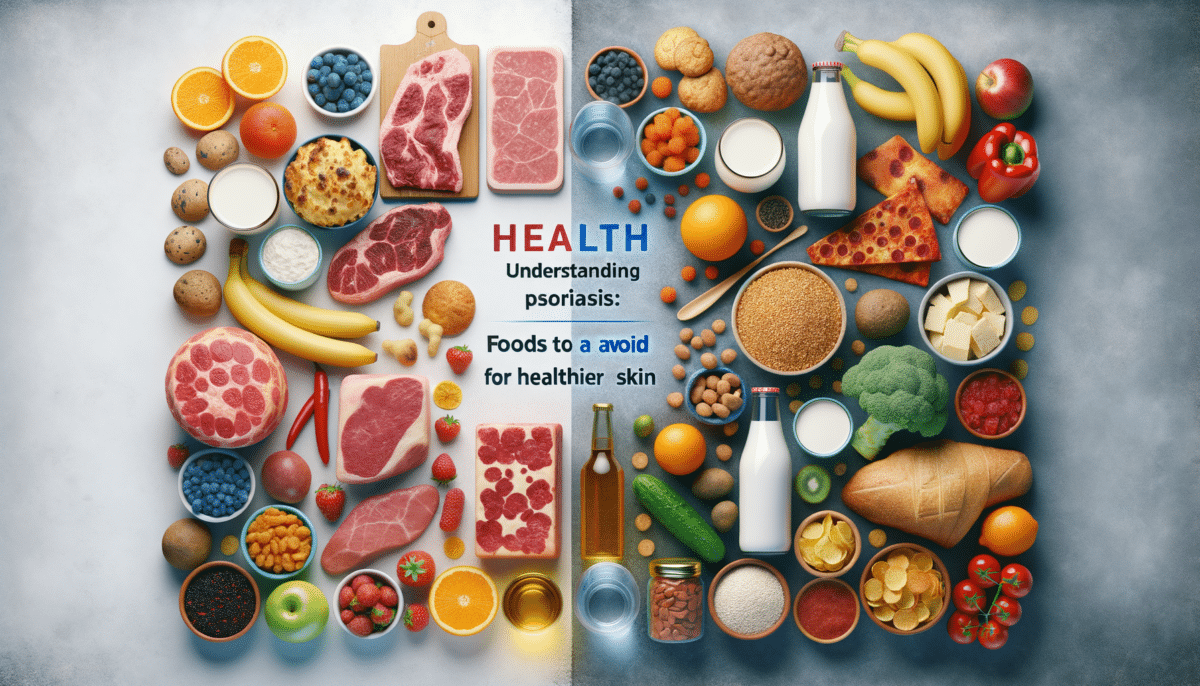Introduction to Psoriasis
Psoriasis is a chronic autoimmune condition that primarily affects the skin, causing red, scaly patches that can be itchy and painful. It’s a prevalent condition, affecting millions worldwide, and while there is no cure, managing symptoms is possible through various lifestyle changes, including diet. Understanding the connection between what we eat and how it can impact psoriasis is crucial for those looking to improve their quality of life.
The Role of Diet in Psoriasis Management
Diet plays a significant role in managing psoriasis, as certain foods can trigger or worsen symptoms. Inflammation is a key factor in psoriasis, and many foods can either exacerbate or help reduce inflammation. For instance, foods high in saturated fats, refined sugars, and processed ingredients are known to increase inflammation, potentially leading to more severe flare-ups.
Conversely, a diet rich in anti-inflammatory foods such as fruits, vegetables, and omega-3 fatty acids can help alleviate symptoms. These foods provide essential nutrients and antioxidants that support skin health and reduce inflammation. Incorporating these into daily meals can lead to noticeable improvements in skin condition and overall well-being.
Foods to Avoid for Better Psoriasis Management
While everyone’s body reacts differently, certain foods are commonly linked to psoriasis flare-ups. Here are some foods to consider avoiding:
- Red Meat: High in saturated fats, red meat can increase inflammation.
- Dairy Products: Some individuals find that dairy exacerbates their symptoms.
- Gluten: Gluten sensitivity is more common in those with psoriasis, and avoiding it may help reduce symptoms.
- Processed Foods: These often contain additives and preservatives that can trigger inflammation.
- Alcohol: Excessive consumption can lead to dehydration and trigger flare-ups.
Eliminating or reducing these foods can be a step towards managing psoriasis more effectively.
Healthy Alternatives and Dietary Tips
Adopting a diet focused on whole, unprocessed foods can be beneficial for those with psoriasis. Here are some dietary tips and alternatives:
- Lean Proteins: Opt for chicken, fish, and plant-based proteins instead of red meat.
- Dairy Alternatives: Consider almond, soy, or oat milk as substitutes.
- Whole Grains: Choose gluten-free grains like quinoa, rice, and oats.
- Fresh Produce: Incorporate plenty of fruits and vegetables, which are rich in vitamins and antioxidants.
- Hydration: Drink plenty of water to keep skin hydrated and support overall health.
These changes can contribute to a healthier lifestyle and potentially reduce psoriasis symptoms.
Conclusion: Taking Control of Psoriasis Through Diet
Managing psoriasis involves a comprehensive approach that includes dietary modifications. By understanding the impact of certain foods and making conscious choices, individuals with psoriasis can potentially reduce flare-ups and improve their skin health. While diet alone may not completely eliminate symptoms, it is a powerful tool that, when combined with medical treatments and lifestyle changes, can lead to a better quality of life.
Consulting with healthcare professionals, such as dermatologists and nutritionists, can provide personalized guidance and support in creating an effective dietary plan tailored to individual needs.
